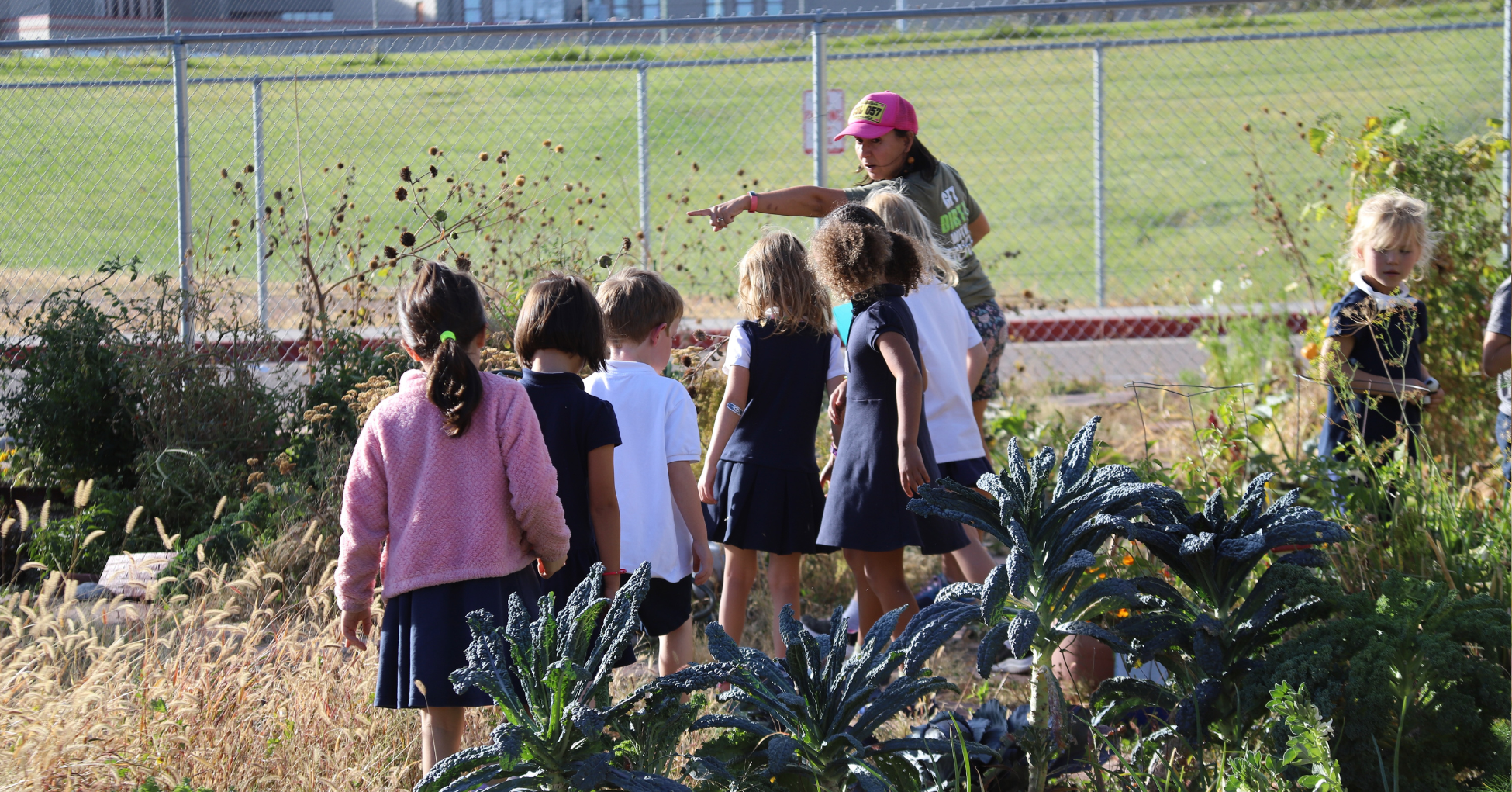At the heart of childhood development is a deep and natural curiosity. In the garden, there are endless opportunities to nurture that curiosity while also tending to the land. To help encourage self-guided exploration, DUG has created simple scavenger hunts designed to engage young gardeners in a fun, respectful way—aligned with our Community Agreements:
- Earth Care: We help the garden grow by being gentle with plants and staying on the paths.
- People Care: We share the garden with others and touch gently but don’t take.
- Fair Share: Everyone gets a turn to find cool things in the garden.
Scavenger hunts are a fantastic tool for inspiring children to take the lead in their garden experience. What begins as a simple checklist often grows into a deeper exploration, sparking new questions and discoveries.
These activities also support important developmental outcomes, including sensory awareness, observational learning, and an early appreciation for local ecosystems.
Exploring Bugs
Gardens are alive with activity, and the insects we find there are some of the most diverse and fascinating creatures. Encouraging children to observe pollinators like bees and ladybugs—and even to learn about unwanted visitors like Japanese beetles—builds a deeper respect for the vital role that all insects play in the growing cycle, whether positive or negative.
Exploring the Garden Fruits
From summer through early fall, gardens overflow with fruits and vegetables ready to be explored. Crops like tomatoes, squash, and beans offer endless opportunities for young gardeners to see, touch, and taste biodiversity up close. Observing and interacting with plants commonly grown in Colorado helps children build a lasting connection to the food they eat and fosters a greater understanding of the natural world.
Exploring Senses
The garden is a sensory playground waiting to be discovered. Activities like 3’s the Magic Number invite children to engage their senses through counting, observing, and touching different textures, shapes, and scents. Sensory-based scavenger hunts support motor skills, language development, and creative expression, all while deepening a child’s bond with the natural world.

